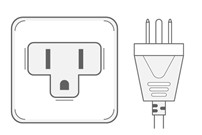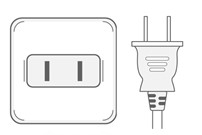Get to know Canada
Canada is as welcoming, safe and diverse as it is dramatic and vast. There is plenty of room to collaborate and innovate against a backdrop of dynamic views—from sophisticated urban centres humming with energy, to rugged mountains and untamed oceans. Celebrate team accomplishments in creative and extraordinary ways: Enjoy a private, catered lobster dinner on red sand dunes; ride the rails through Canada’s spectacular Rocky Mountains; or come nose-to-nose with polar bears in their natural habitat. With so many choices, it’s no surprise that attendance and delegate engagement soar with an invitation to meet in Canada.
For information about travelling to Canada and COVID-19 requirements, please click here.
We’re No. 1
…Lonely Planet, The New York Times and Travel + Leisure all rate Canada as an exceptional place to visit.
We’re closer than you think
…Touch down in our hub cities within hours from the U.S., U.K. and Europe. Canada’s largest urban centres are within 160 km (100 mi) of the U.S. border, which means faster direct flights.
Location, location, location
…Canada’s powerful landscapes will energize and inspire your group, whether your destination is urban city, a resort, a coastal town, the mountains or the prairies.
English and French
Canadian dollar ($ or CAD)
Each delegate is responsible for making sure they have the appropriate travel documents and that they can comply with all entry requirements before planning their trip to Canada. The government links below will help you assess your personal situation and determine if you can enter Canada. We recommend you check the links below periodically as the COVID-19 situation is constantly evolving:
- Proof of vaccination is now required to travel to Canada
- Visitors to Canada must be in possession of a valid passport or travel document with a minimum validity of six months beyond the period of stay.
- Most people need a visa or an Electronic Travel Authorization (eTA) to travel to Canada, but not both. Some people may only need their valid passport.
- ArriveCAN app is the Government of Canada’s official app travelers must use to provide mandatory travel information before and after their entry into Canada
Find out if you meet the vaccination criteria to travel to Canada: https://travel.gc.ca/travel-covid/travel-restrictions/wizard-start
Find out if you need a visa to travel to Canada by clicking in the following link: https://www.cic.gc.ca/english/visit/visas.asp
ArriveCAN app download page
https://www.canada.ca/en/public-health/services/diseases/coronavirus-disease-covid-19/arrivecan.html#a3
Contact your nearest Canadian Embassy by clicking on the following link: https://travel.gc.ca/assistance/embassies-consulates
Latest COVID-19 information: https://congress.wfh.org/travel-covid-19-information/
Reminder: delegates should also take into consideration the entry requirements for their home country when planning their trip.
Disclaimer: the information provided by the WFH on this section is for general informational purposes only. All information contained in this section is provided in good faith, however we make no representation or warranty of any kind, express or implied, regarding the accuracy, adequacy, validity, reliability, availability, completeness or other made based on the Canadian Government website links provided.
Registration fees do not include insurance of any kind. It is strongly recommended that all delegates take out their own travel and medical insurance prior to coming to Congress. The policy should include loss of fees/deposit through cancellation of your participation in the meeting, or through cancellation of the meeting itself, loss of airfares for any reason, medical expenses, loss or damage to personal property, and additional expenses and repatriation should travel arrangements have to be altered. Neither the meeting secretariat nor the organizing committee will take any responsibility for any participant failing to purchase sufficient insurance. Please speak to your travel agent or airline for more information.
In the province of Quebec, the Goods and services tax, GST (5%) and the Québec sales tax, QST (9.975%) are collected on the sale of most goods and services and they are added at the time of payment. The harmonized sales tax (HST) replaces the provincial sales tax and the GST in some provinces. Click here to calculate Canadian sales taxes according to each province.
Shopping hours
Most businesses, including shopping centres, are open as follows:
• Monday to Wednesday: 9:30 a.m. to 5:30 p.m.
• Thursday and Friday: 9 a.m. to 9 p.m.
• Saturday: 9:30 a.m. to 5 p.m.
• Sunday: 10 a.m. to 5 p.m. (some merchants may only open at noon)
Holidays
January 1 – New Year’s Day
April 15 – Good Friday
May 23 – National Patriots’ Day/Victoria Day
June 24 – Saint-Jean-Baptiste Day
July 1 – Canada Day
September 5 – Labour Day
October 10 – Thanksgiving
December 25 – Christmas Day
Outlets and voltage (110 volts) are the same as in the United States. Small appliances such as hair dryers, irons, razors, etc. can be used in Canada. For those from other countries, adapters are required for electrical appliances. The frequency of electrical current in Canada is 60 Hz.


Canada uses the metric system of measurement. However, colloquially, some imperial measurements are still used, depending on the situation. For example, although the government records vital statistics using metric measurements, Canadians generally measure their weight in pounds, and their heights in feet and inches. Cooking is another example where Canadians will use imperial over metric. They often use degrees Fahrenheit for oven temperatures and will measure ingredients by the cup or tablespoon.
Also, Canadians and the Canadian real estate industry will often use “square feet” to measure spaces such as rooms, houses, apartments, etc.
• Distance is measured in kilometres (km). Road signs will give distances in kilometres.
• Speed is expressed in kilometres per hour (km/h)
• Volume is measured in litres (l)
• Temperature is measured in degrees Celsius (°C)
• Weight is measured in kilograms (kg)
| From | To | Distance |
| Montreal | Ottawa, ON | 200 km/ 123 miles |
| Niagara Fall, ON | 670 km/ 415 miles | |
| Halifax, NS | 1,250 km/ 775 miles | |
| Vancouver, BC | 4,800 km/ 3,000 miles |
Information from Tourism Montreal.